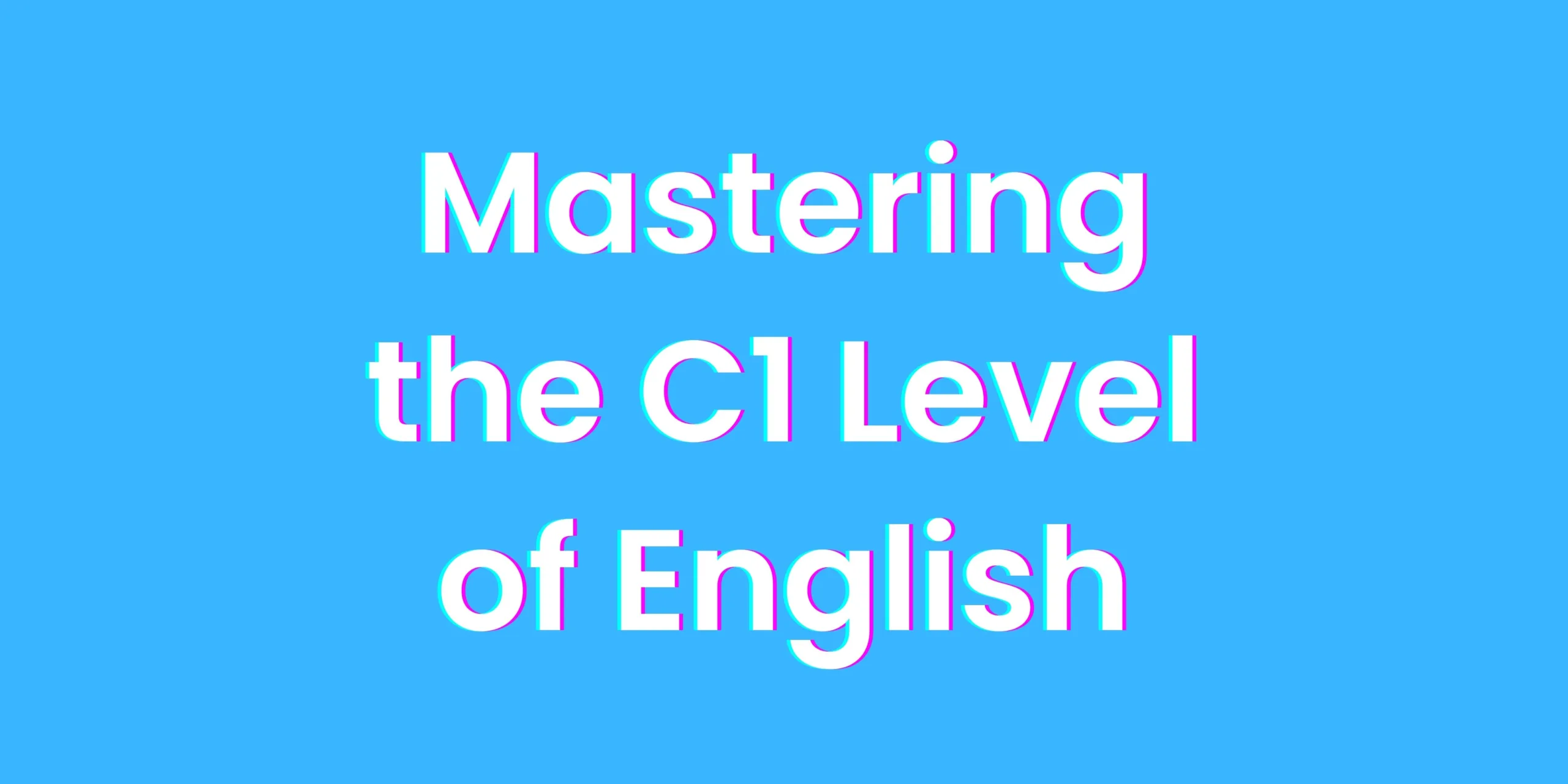Mastering the C1 Level of English

What is the C1 Level?
The C1 level of English, as defined by the Common European Framework of Reference for Languages (CEFR), is referred to as Advanced English. Learners at this stage possess a high degree of fluency and accuracy, allowing them to perform complex tasks in academic, professional, and social contexts. They can handle demanding texts, articulate detailed ideas, and adapt their communication style to different situations.
Key Skills at the C1 Level
Reading Comprehension
At the C1 level, learners can understand long and complex texts, including academic articles, reports, and literary works. They can grasp implicit meanings, recognize nuanced arguments, and analyze the writer’s intent.
Listening Abilities
Learners can follow extended speech, even when it is not clearly structured. They can understand lectures, discussions, and broadcasts on abstract or specialized topics without much difficulty.
Speaking Proficiency
C1 learners can express themselves fluently and spontaneously. They can engage in debates, present ideas convincingly, and handle professional negotiations with confidence. Their use of idioms and varied vocabulary enhances their communication.
Writing Expertise
Writing at this level is well-structured and sophisticated. Learners can compose essays, proposals, and reports that are clear, organized, and grammatically accurate. They are also capable of tailoring their tone and style for different audiences.
Why is the C1 Level Significant?
Achieving the C1 level demonstrates a strong command of English, often required for higher education, professional advancement, and leadership roles in English-speaking environments. It reflects the ability to function effectively in scenarios that demand high-level communication skills.
How to Reach the C1 Level
Engage with Challenging Content
Read academic journals, in-depth news articles, and literature to enhance comprehension skills. Listening to complex podcasts or lectures will also help.
Expand Vocabulary
Focus on advanced vocabulary, including idiomatic expressions and formal phrases. Tools like vocabulary apps or advanced textbooks can be beneficial.
Refine Grammar and Style
Pay attention to complex grammatical structures, such as conditional sentences and passive voice. Practice writing essays and get feedback from native speakers or teachers.
Practice Critical Thinking
Engage in discussions on abstract topics to develop analytical thinking. Debate ideas, question assumptions, and justify your opinions logically.
Consistent Practice
mmersion is key. Write daily, join speaking clubs, and use English in professional and academic contexts as often as possible.




